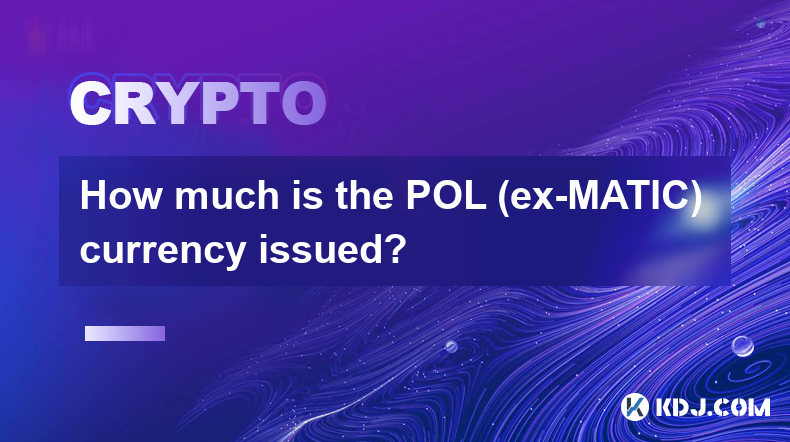-
 Bitcoin
Bitcoin $94,390.3823
-1.51% -
 Ethereum
Ethereum $1,809.5396
-1.25% -
 Tether USDt
Tether USDt $1.0001
-0.02% -
 XRP
XRP $2.1556
-1.52% -
 BNB
BNB $585.5542
-2.25% -
 Solana
Solana $143.9312
-2.02% -
 USDC
USDC $1.0000
0.00% -
 Dogecoin
Dogecoin $0.1708
-2.67% -
 Cardano
Cardano $0.6742
-3.87% -
 TRON
TRON $0.2465
0.40% -
 Sui
Sui $3.2660
-2.08% -
 Chainlink
Chainlink $13.8776
-2.75% -
 UNUS SED LEO
UNUS SED LEO $9.0792
1.46% -
 Avalanche
Avalanche $19.8363
-3.56% -
 Stellar
Stellar $0.2660
-1.30% -
 Toncoin
Toncoin $3.0177
-2.31% -
 Shiba Inu
Shiba Inu $0.0...01263
-2.81% -
 Hedera
Hedera $0.1763
-2.46% -
 Bitcoin Cash
Bitcoin Cash $356.3130
-1.92% -
 Hyperliquid
Hyperliquid $19.8818
-4.94% -
 Litecoin
Litecoin $85.2444
-1.64% -
 Polkadot
Polkadot $3.9151
-3.07% -
 Dai
Dai $1.0001
0.01% -
 Monero
Monero $279.2912
0.46% -
 Bitget Token
Bitget Token $4.3204
-1.32% -
 Ethena USDe
Ethena USDe $1.0005
-0.01% -
 Pi
Pi $0.5898
1.22% -
 Pepe
Pepe $0.0...08066
-1.90% -
 Aptos
Aptos $5.0890
-2.07% -
 Uniswap
Uniswap $4.9932
-2.08%
How much is the POL (ex-MATIC) currency issued?
The issuance of POL (ex-MATIC) is essential for maintaining the security, stability, and governance of the Polygon network, controlling inflation while rewarding validators and empowering the community.
Dec 07, 2024 at 09:23 pm

The Issuance of POL (ex-MATIC) Currency
Introduction
POL (formerly known as MATIC) is the native cryptocurrency of Polygon, a leading layer-2 scaling solution for the Ethereum blockchain. POL facilitates various transactions within the Polygon ecosystem, including gas fees, staking rewards, and governance participation. Its issuance plays a crucial role in maintaining the stability and functionality of the Polygon network.
Issuance Mechanism
POL's issuance follows a predefined schedule, ensuring a controlled and consistent supply over time. The initial supply of POL was 10 billion tokens, and the issuance mechanism is designed to gradually release these tokens into circulation. The issuance process involves the following steps:
1. Staking POL to Participate in Polygon's Proof-of-Stake Consensus
To maintain the network's security and validate transactions, Polygon utilizes a proof-of-stake (PoS) consensus mechanism. Users stake POL tokens to become validators, which involves committing POL tokens to the network for a certain duration. In return for securing the network, validators receive POL rewards proportional to their staked tokens.
2. Issuance of Block Rewards
As validators successfully process and validate new blocks on the Polygon blockchain, they receive a block reward. These rewards consist of newly minted POL tokens, which are added to the circulating supply. The block reward amount is gradually reduced over time to control the rate of issuance.
3. Inflation Rate Control
Polygon's issuance mechanism includes measures to control inflation and maintain the value of POL. The issuance schedule is designed to gradually decrease the block reward amount, thereby reducing the rate at which new POL tokens are introduced into circulation. As the network stabilizes and transaction volume increases, the block reward may be further adjusted to fine-tune the inflation rate.
4. POL Burns
Besides reducing block rewards, Polygon also employs a POL burning mechanism to reduce the circulating supply and control inflation. A portion of the transaction fees collected on the network are periodically burned, permanently removing those POL tokens from circulation. This mechanism helps to maintain the scarcity of POL and potentially increases its long-term value.
5. Governance Voting and Community Involvement
POL token holders have the right to participate in the governance of the Polygon ecosystem through the Polygon DAO (decentralized autonomous organization). POL holders can vote on proposals that shape the direction of Polygon's development, including updates to the issuance schedule and other network parameters. This decentralized governance model ensures that the community has a say in the future of Polygon.
Disclaimer:info@kdj.com
The information provided is not trading advice. kdj.com does not assume any responsibility for any investments made based on the information provided in this article. Cryptocurrencies are highly volatile and it is highly recommended that you invest with caution after thorough research!
If you believe that the content used on this website infringes your copyright, please contact us immediately (info@kdj.com) and we will delete it promptly.
- Kirkland Lake volunteer firefighter Shawn Wong rescues woman from burning apartment
- 2025-05-05 07:20:14
- Rexas Finance (RXS): The Tokenizing Disruption of Asset Ownership
- 2025-05-05 07:20:14
- Ten US Senators Come Out Swinging Against Revised GENIUS Act, Saying It Might Do More Harm Than Good
- 2025-05-05 07:15:12
- Revised GENIUS Act Stumbles on Opposition From 10 US Senators
- 2025-05-05 07:15:12
- Ethereum (ETH) Consolidates as Vitalik Shares Fresh Proposal
- 2025-05-05 07:10:13
- Kristen Welker Confronted Trump About Whether He's Profiting From the $TRUMP Meme Coin
- 2025-05-05 07:10:13
Related knowledge

BSV transaction fees suddenly increased? How to adjust the handling fee to save costs?
May 02,2025 at 06:42am
Understanding BSV Transaction FeesBSV (Bitcoin SV) aims to fulfill the original vision of Bitcoin as a peer-to-peer electronic cash system. One of the key elements in this system is the transaction fee, which compensates miners for including transactions in the blockchain. Recently, users have noticed a sudden increase in BSV transaction fees, which can...

Does BSV transaction require real-name authentication? Is anonymous trading feasible?
May 03,2025 at 03:14pm
The question of whether BSV (Bitcoin SV) transactions require real-name authentication and whether anonymous trading is feasible is a complex one, deeply intertwined with the broader dynamics of cryptocurrency regulations and blockchain technology. Let's delve into these aspects to provide a comprehensive understanding. Understanding BSV and Its Transac...

How to solve the high slippage of BSV transactions? How to choose between limit and market orders?
May 02,2025 at 09:01pm
High slippage can be a significant concern for traders dealing with Bitcoin SV (BSV) transactions. Slippage refers to the difference between the expected price of a trade and the price at which the trade is actually executed. This can occur in fast-moving markets or when there is low liquidity. To address this issue, understanding the mechanics of slipp...

What if BSV transactions are frozen? How to contact customer service to unblock the account?
May 05,2025 at 05:01am
When dealing with Bitcoin SV (BSV) transactions, encountering issues such as frozen transactions can be a stressful experience. This article will guide you through the process of understanding why BSV transactions might be frozen and how to contact customer service to unblock your account. We will cover the reasons behind frozen transactions, steps to t...

What if BSV node synchronization is slow? How to optimize local wallet performance?
May 03,2025 at 04:35pm
When dealing with BSV (Bitcoin SV) node synchronization and optimizing local wallet performance, it's crucial to understand the underlying issues and implement effective solutions. Slow synchronization and poor wallet performance can significantly hinder your experience with the BSV network. This article will delve into the reasons behind slow BSV node ...

How to check BSV transaction records? How to use the blockchain browser?
May 03,2025 at 06:50am
Checking BSV (Bitcoin SV) transaction records and using a blockchain browser are essential skills for anyone involved in the cryptocurrency space. These tools allow you to verify transactions, check wallet balances, and understand the flow of funds on the blockchain. This article will guide you through the process of checking BSV transaction records and...

BSV transaction fees suddenly increased? How to adjust the handling fee to save costs?
May 02,2025 at 06:42am
Understanding BSV Transaction FeesBSV (Bitcoin SV) aims to fulfill the original vision of Bitcoin as a peer-to-peer electronic cash system. One of the key elements in this system is the transaction fee, which compensates miners for including transactions in the blockchain. Recently, users have noticed a sudden increase in BSV transaction fees, which can...

Does BSV transaction require real-name authentication? Is anonymous trading feasible?
May 03,2025 at 03:14pm
The question of whether BSV (Bitcoin SV) transactions require real-name authentication and whether anonymous trading is feasible is a complex one, deeply intertwined with the broader dynamics of cryptocurrency regulations and blockchain technology. Let's delve into these aspects to provide a comprehensive understanding. Understanding BSV and Its Transac...

How to solve the high slippage of BSV transactions? How to choose between limit and market orders?
May 02,2025 at 09:01pm
High slippage can be a significant concern for traders dealing with Bitcoin SV (BSV) transactions. Slippage refers to the difference between the expected price of a trade and the price at which the trade is actually executed. This can occur in fast-moving markets or when there is low liquidity. To address this issue, understanding the mechanics of slipp...

What if BSV transactions are frozen? How to contact customer service to unblock the account?
May 05,2025 at 05:01am
When dealing with Bitcoin SV (BSV) transactions, encountering issues such as frozen transactions can be a stressful experience. This article will guide you through the process of understanding why BSV transactions might be frozen and how to contact customer service to unblock your account. We will cover the reasons behind frozen transactions, steps to t...

What if BSV node synchronization is slow? How to optimize local wallet performance?
May 03,2025 at 04:35pm
When dealing with BSV (Bitcoin SV) node synchronization and optimizing local wallet performance, it's crucial to understand the underlying issues and implement effective solutions. Slow synchronization and poor wallet performance can significantly hinder your experience with the BSV network. This article will delve into the reasons behind slow BSV node ...

How to check BSV transaction records? How to use the blockchain browser?
May 03,2025 at 06:50am
Checking BSV (Bitcoin SV) transaction records and using a blockchain browser are essential skills for anyone involved in the cryptocurrency space. These tools allow you to verify transactions, check wallet balances, and understand the flow of funds on the blockchain. This article will guide you through the process of checking BSV transaction records and...
See all articles




















































































